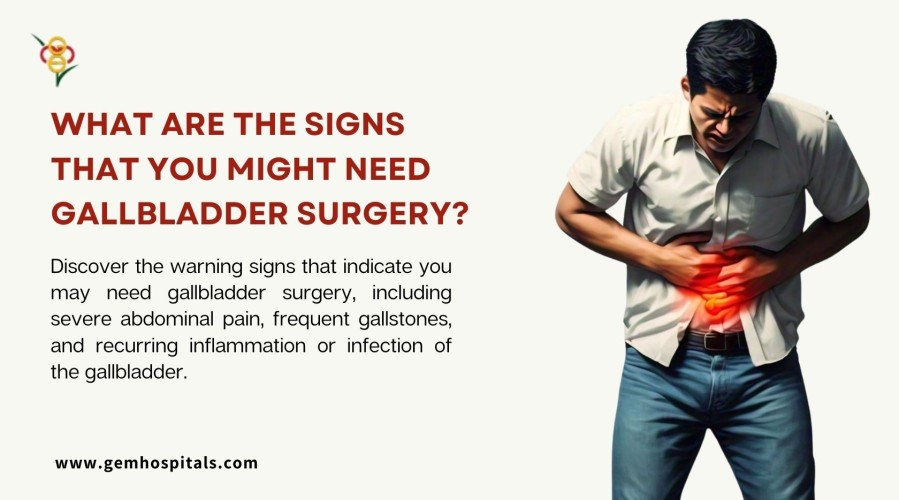Learn effective solutions for digestive problems with expert tips to improve gut health, reduce discomfort, and maintain a healthy digestive system.
What Are the Signs That You Might Need Gallbladder Surgery?

Understanding the signals your body sends is crucial, especially when it comes to your gallbladder. This small organ plays a significant role in your digestive system, and problems with it can lead to severe discomfort and health issues. Here’s how you can tell if you might need gallbladder surgery.
Persistent Abdominal Pain
One of the most common signs that you might need gallbladder surgery is persistent abdominal pain. This pain often occurs in the upper right part of your abdomen and can radiate to your back or right shoulder. It might start suddenly and can range from mild to severe. If this pain is recurrent or long-lasting, it's a strong indicator that you should see a doctor.
Nausea and Vomiting
Frequent nausea and vomiting, especially after meals, can be a sign of gallbladder problems. These symptoms occur because gallstones or other gallbladder issues can block the bile ducts, leading to digestive disturbances.
Digestive Problems
- Indigestion: Chronic indigestion, especially after eating fatty foods, can indicate gallbladder issues.
- Bloating: Feeling bloated, especially after meals, is a common symptom.
- Gas: Excessive gas and belching can also be signs of gallbladder problems.
Jaundice
Jaundice, characterized by yellowing of the skin and eyes, occurs when bile flow is blocked. This condition can indicate a serious gallbladder problem, such as a stone blocking the bile duct or an infection.
Fever and Chills
If you experience unexplained fever and chills, it could be a sign of an infection in your gallbladder. This condition, known as cholecystitis, is serious and requires immediate medical attention.
Changes in Stool and Urine Colour
- Light-Colored Stool: If your stool becomes pale or clay-colored, it might indicate that bile is not reaching your intestines.
- Dark Urine: Dark urine can be a sign of increased bilirubin in your body, which can occur if your gallbladder is not functioning properly.
Schedule an Appointment for GEM Hospital
If you are experiencing any of these symptoms, it’s essential to seek medical advice promptly. Gallbladder issues can escalate quickly and lead to severe health complications. At GEM Hospital, we specialize in diagnosing and treating gallbladder problems. Our expert team is here to provide the care and support you need. Schedule an appointment with GEM Hospital
Blogs & Article
Explore current research trends in digestive health, including new treatments, advanced diagnostics, and innovations improving gut health and patient care.
Discover common digestive health myths and the real facts. Learn simple tips to improve gut health and maintain better digestion for a healthier life.


